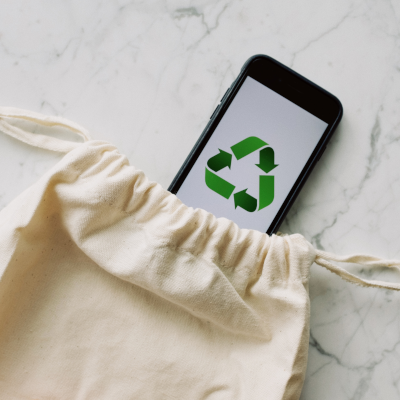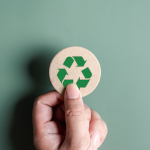
Like To Be Greener at Home?
Going green at home – read on for some simple swaps to help create a sustainable lifestyle.
In our fast-paced world, it’s easy to feel overwhelmed by the sheer scale of environmental challenges.
But here’s the good news: living a more sustainable and eco-friendly life doesn’t require a complete overhaul of your existence. In fact, many of the most impactful changes are small, everyday habits you can adopt right in your own home.

Think of it as making a series of smart swaps and mindful choices. Every little bit truly helps. Ready to reduce your waste, make eco-conscious product choices, and embrace a greener lifestyle without feeling overwhelmed?
Read on for some practical tips you can implement starting today!
1. Master the Art of Waste Reduction (the 4 Rs – Reduce, Reuse, Recycle, Rot!)
This isn’t just a catchy phrase; it’s completely doable.
- Reduce – it’s the first step
- Say no to single-use – carry a reusable water bottle, coffee cup, and shopping bags. This is the biggest immediate impact.
- Buy in bulk – if you have the storage space for pantry staples like rice, pasta, etc, buying in larger quantities reduces packaging waste.
- Rethink before you buy – do you really need that new gadget, or can you borrow, repair, or make do with what you have?
- Opt for digital – it’s not hard these days to choose e-statements, e-tickets, and digital subscriptions over paper where possible. Most organisations offer digital first.
- Reuse what you can
- Repurpose jars & containers – glass jars from spreads, pickles, olives etc are perfect for food storage and spices.
- Give items a second life – before tossing, consider if something can be repurposed (e.g., old t-shirts for cleaning rags, old towels for pet bedding).
- Donate or sell – give clothes, furniture, or books a new home rather than sending them to landfill.
- Recycle properly
- Know your local council rules – recycling varies by council. Check your local council’s website for specifics on what can and can’t go into your bins. It takes a little effort and can help prevent contamination from being a big problem.
- Rinse containers – a quick rinse prevents food residue from contaminating other recyclables.
- Flatten cardboard – save space and help the recycling process.
- Rot (Compost) your organics if you have the space
- Start a compost bin – food scraps (fruit, veg, coffee grounds, tea bags) and garden waste can be turned into nutrient-rich soil. Even a small balcony can host a worm farm or a compact composter for potted plants!
- Use a green bin – if your local council offers a green waste bin for food and garden scraps, make full use of it. This diverts organic waste from landfill where it produces harmful methane gas.
2. Be More Mindful – Make Eco-Conscious Product Choices
Every purchase you make is a vote for the kind of world you want to live in.
- Prioritise quality over quantity – consider investing in durable items that last longer, reducing the need for frequent replacements (e.g., quality linen bedding!).
- Read labels & look for certifications
- Fair trade – supports ethical labour practices.
- Cruelty-free – products not tested on animals.
- Recycled content – indicates the product is made from previously used materials.
- Support local & ethical businesses – buying from local businesses supports your community and economy. Research brands to see their environmental and social policies.
- Consider choosing concentrates & refillable options – for cleaning products and household items, look for concentrated formulas or brands that offer refill programs to reduce plastic waste.
3. Embrace a Greener Lifestyle at Home
Beyond what you buy and throw away, how you live daily makes a difference.
- Conserve Energy
- Unplug “vampire” electronics – did you know that devices still draw power even when turned off?
- Use natural light – wherever possible, open blinds and curtains during the day & let natural light flood in.
- LED lighting – switch to energy-efficient LED bulbs.
- Smart thermostat – optimise heating and cooling (crucial in Australian summers!).
- Wash clothes in cold water – most detergents now work just fine in cold water – a huge energy saver.
- Conserve water
- Shorter showers – every minute counts, make it quick!
- Fix leaks – quickly – a small drip can waste litres of water over time.
- Water your garden smartly – water early in the morning or late evening to reduce evaporation. Consider drought-resistant plants and/or plants that don’t require frequent watering.
- Full Loads – only run washing machines and dishwashers when they’re full.
- Embrace second-hand – buying pre-loved furniture, electronics, vehicles and house-hold items reduces demand for new production and keeps items out of landfill. Op shops and online marketplaces are treasure troves!
Sustainable living isn’t about achieving perfection; it’s about progress. If we all say “my little effort won’t make a big impact” making any sort change for the better will be a very slow process.
Start with one or two small changes this week and gradually build on them. You’ll be surprised how quickly these simple shifts add up, contributing to a healthier planet and often, a healthier you!
